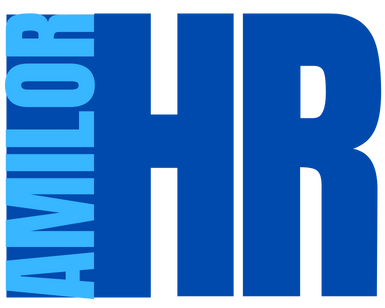The human resources field offers a wide range of career opportunities, with salaries varying according to position and experience. Understanding how to calculate your HR take-home pay is essential for professionals in this sector. Let’s take a look at the different aspects of compensation in HR, from the best-paid jobs to the factors influencing salaries.
HR professions and their pay scales
The human resources sector encompasses a variety of positions, each with its own pay scale. Here’s an overview of the main HR professions and their average net salaries:
- Human Resources Director (HRD): €4,500 – €8,000 per month
- Recruitment Manager: €3,000 – €5,000 per month
- Training Manager: €2,500 – €4,000 per month
- Payroll manager: €2,300 – €3,800 per month
- Social relations manager: €2,800 – €4,500 per month
These figures vary according to several factors, such as company size, location and the professional’s level of experience. It is essential to note that the HR net salary may also include benefits in kind and performance bonuses.
The following table illustrates the potential evolution of a human resources manager’s salary over the course of his or her career:
| Experience | Net monthly salary (in euros) |
|---|---|
| Beginner (0-2 years) | 1 800 – 2 300 |
| Confirmed (3-5 years) | 2 300 – 3 000 |
| Senior (6-10 years) | 3 000 – 4 000 |
| Expert (10+ years) | 4 000+ |
Factors influencing take-home pay in HR
Several factors have a significant impact on an HR professional’s take-home pay. Understanding these factors can help you better negotiate your compensation package or plan your career development:
Geographical location: HR salaries vary considerably by region. For example, professionals working in Paris or major metropolitan areas generally enjoy higher remuneration than their counterparts in the provinces, due to the more notable cost of living.
Company size and sector: Large companies and multinationals tend to offer more attractive salaries than SMEs. Similarly, certain sectors such as finance or information technology often offer higher salaries for HR positions.
Education and qualifications: A Master’s-level degree in human resources or business management can significantly boost salary potential. Professional certifications, such as the ANDRH (Association Nationale des DRH), can also enhance the profile and justify a higher salary.
Specific skills: Mastery of sought-after skills, such as expertise in employment law, HRIS (Human Resources Information System) management or HR analytics skills, can lead to an increase in take-home pay.

Strategies for optimizing your net HR salary
To maximize your take-home pay in human resources, there are several strategies you can implement:
- Ongoing training: Invest in professional development by taking specialized training courses or obtaining recognized HR certifications.
- Salary negotiation: Carefully prepare your annual performance review, highlighting your achievements and the added value you bring to the company.
- Professional mobility: Being open to opportunities to change company or sector can lead to significant salary leaps.
- Specialization: Specialize in a high-demand HR field, such as digital HR transformation or international talent management.
It’s also crucial to stay abreast of trends in the HR job market and pay trends in the sector. Tools such as APEC’s Observatoire des Rémunérations or salary surveys published by specialist recruitment agencies can provide valuable information for assessing your position in the market.
Career prospects and impact on net HR salary
The field of human resources is constantly evolving, influenced by digital transformations and new employee expectations. These changes open up new career prospects and can have a positive impact on salaries:
Digitization of HR: The growing adoption of technology in HR processes is creating a demand for hybrid profiles, combining HR expertise and digital skills. These positions, such as HR Data Analyst or HRIS Manager, often benefit from attractive remuneration packages.
Talent management: With the growing emphasis on employee experience and talent retention, talent management and employer branding specialists are seeing their value on the job market increase.
Strategic HR: HR professionals capable of contributing to the company’s overall strategy and aligning HR practices with business objectives are increasingly sought-after, and this is reflected in their remuneration.
In a nutshell, HR take-home pay depends on many factors, from the position held to the professional’s specific skills. By keeping abreast of market trends, continually developing your skills and adopting a strategic approach to your career, you can optimize your remuneration in the exciting field of human resources.

